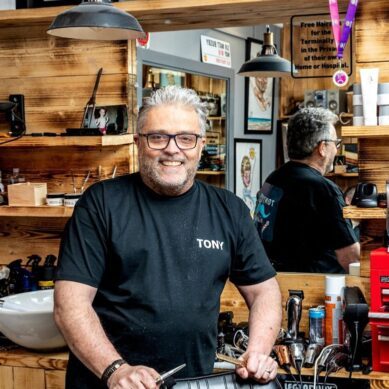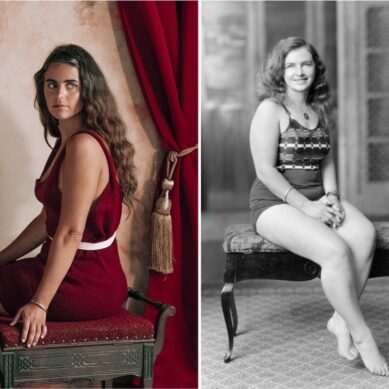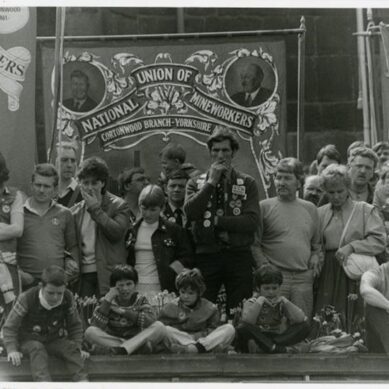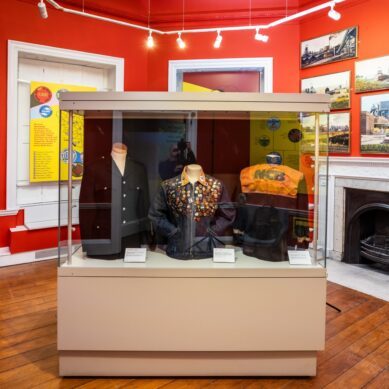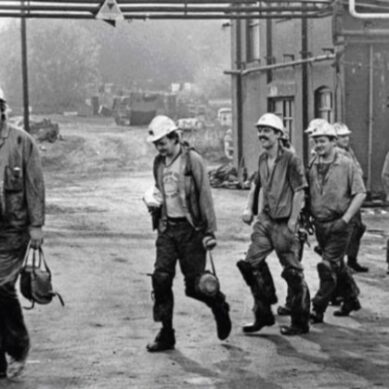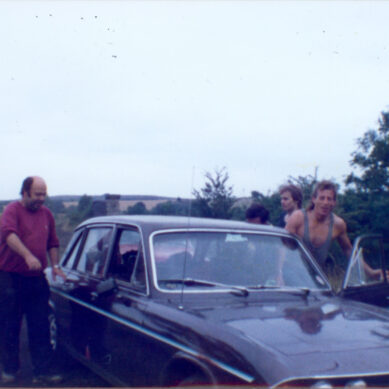When Yorkshire-born Margaret Drinkall suggests that you stop thinking about something and get on and do it, you know she’s talking from first-hand experience and with a genuine passion to see others take the plunge and follow their dreams.
As the published author of 31 books – and counting – she certainly has the credentials to inspire anyone to seize the chance to change their lives for the better and that’s exactly what she wants to do.

Born into a large family in the 1940s, Margaret left school at the age of 14 without a single qualification. Despite being the only girl in her class to pass the 11 plus exam, giving her entry into the local technical college, the feelgood moment on getting the news was sadly short-lived. Like many of her peers at the time, Margaret wasn’t allowed to stay on at school. Instead she found work and went on to start her own family, raising four sons and taking a series of low paid jobs along the way.
Counting factory worker, cleaner and lollipop lady among her varied roles, Margaret, now 72, can’t even contemplate that earning a living by writing about her twin passions of local history and true crime stories actually fits the description of work.
“I’ve worked and I’ve worked hard but what I’m doing now isn’t work. I love it and can’t wait to get started each day,” she says.
Given that she sometimes hops out of bed as early as 3 or 4am to do a spot of research because she’s so keen to find out what happens next in some long forgotten chapter of local history, you get the impression that ‘working’ life is now a total joy. So too is living in her adopted home town of Rotherham, where Margaret arrived in 2001 from a small village near Scunthorpe to take on a job with the council.
But she didn’t reach this happy state of affairs overnight which is partly why she’s so keen to encourage others to grasp the nettle and do something that really interests them, especially if life feels like it’s not going quite to plan.
“No one else can do it for you so you just have to get on with it and have a go. I’d really love to be able to inspire other people because, honestly if I can do it, anyone can do it,” she explains.
The road from unqualified schoolgirl to fully fledged author was more of a marathon than a sprint and started around the age of 45 when Margaret studied a history degree at the University of Humberside. Describing university life as an ‘eye-opener’ Margaret’s love of history was given free rein to develop into something that would one day lead to a career that had once seemed impossible.
“If someone had told me 25 years ago that I’d be doing this now I wouldn’t have believed them,” she says.
Aged 60, she went on to achieve a master’s degree in history through the Open University, an experience she enjoyed even more and would recommend to anyone with an interest in doing it.
Deciding that the next academic step of a PhD wasn’t for her, Margaret instead set her sights on a different goal. While walking along Rotherham’s Alma Road one day, she glimpsed what would have been the laundry walls of the old workhouse and resolved there and then that there was a story to be told and that was the book to do. Months of in-depth research followed along with the tentative first steps into the unfamiliar world of publishing until, about two years later in 2009, a 63-year-old Margaret found herself gazing at her very first book in print ‘Rotherham Workhouse,’ published by History Press.
With the bit firmly between her teeth, more books followed and Margaret eventually found the confidence to retire from her 9 ‘til 5 job to take up writing full-time. In just nine years, she has written a total of 31 books: 15 about Rotherham covering crime or local history; six about Sheffield; and others about Barnsley, Leeds and Halifax, where Margaret was born.
Margaret’s latest title: “Struggle and Suffrage in Sheffield” charts women’s lives and the fight for equality between 1850 and 1950. Published by Barnsley-based Pen and Sword, it begins with an astonishing story of a helpless wife being sold in Sheffield marketplace. It ends with the far more upbeat, if belated, official recognition of the city’s Women of Steel, who worked day and night in munitions factories during both world wars, often as bombs fell around them.
The richly detailed chapters in between cover everything from women’s treatment in the justice system to family planning and motherhood and the long fight for women’s votes. Margaret’s fascination with the people involved at all points on the social scale shines through the pages and gives an incredible insight into their day-to-day lives.
Who knew, for example, that women’s patrols – the forerunners to women police officers – were established during World War One to prevent young girls becoming ‘khaki crazy’ at the sight of men in uniforms?
Such gems are gleaned by delving deep into official archives, newspaper cuttings and anything else Margaret can lay her hands on to paint a colourful picture filled with comedy and tragedy in roughly equal measures. She’s never happier than spending hours on end thumbing through pages of official records and minutes and looking at grainy images to research and illustrate a topic through all its many twists and turns. The main challenge the task presents to her is how to drag herself away.
Among the stories Margaret uncovers are many that leave a lasting impression, both good and bad, such as the image of suffragettes being unceremoniously ejected from yet another gate-crashed meeting.
With such a wealth of historical facts at her fingertips, it’s easy for readers to imagine the unfolding scene. You can be transported, for example, to 1907 and a visit from the Secretary of State to Sheffield’s Albert Hall. It was here that the offending women were literally manhandled by police constables who ’pushed, dragged and finally carried them from the room’ but we also learn that: ‘Miss (Adela) Pankhurst, was undaunted as she took the opportunity, now hatless and from a position clinging onto a drainpipe, to address a huge crowd that stretched across Barkers Pool.’

Many key figures in the Suffragette movement found their way to Sheffield and helped to influence the cause.
“These women were heroes but we’ve barely known anything about them,” says Margaret.
Likewise, the Women of Steel who worked tirelessly in the Sheffield steelworks but were dismissed, unacknowledged, when the men returned to reclaim their roles.
Margaret believes that the struggle for equality made some great strides in Sheffield during the 100 years in question and her book celebrates such notable milestones as the election of the first female Lord Mayor, Mrs Ann Eliza Longden, in 1936. However, it also notes that newspaper reports of the time focused less on Mrs Longden assuming civic office and more on what kind of reception she was likely to receive at the Cutlers Feast where men had always reigned supreme.
With a stark reference to her treasured first book, Margaret admits she was recently thinking that, had she been alive in 19th century Rotherham at the age of 72, the workhouse is very likely where she would be now.
Happily, she’s here in the 21st century to tell us the tale Instead. And it seems that there are plenty more tales to be told. Even with so many titles now under her belt, Margaret has new ideas in the pipeline and several writing projects on the go. Her latest list includes the potentially spine-chilling Murderous Sheffield and an A to Z of Rotherham Crimes.
Although the more gruesome aspects of these real life crimes terrify her, Margaret thrives on discovering the details and piecing together a vivid picture. Perhaps the chosen topics should come as no surprise as she can still recall the thrill of telling night-time ghost stories to her sisters as a child.
Nowadays the thrills come in the shape of seeing her books reach fruition and sharing the stories she unearths. She says that having her 30th book printed was just as exciting as her first which is presumably another incentive to do more – that and being able to work at home in your dressing gown if you happen to feel like it.
Margaret’s two youngest sons, Chris and Steven, are among her biggest fans although she knows they haven’t necessarily read her books. And she doesn’t expect them to because “they’re not really interested in history.”
What they do instead speaks volumes; they tell people what she does for a living and Chris helps with some of the IT elements and photography, sharing selected images on Facebook on his mum’s behalf including shots of her books lined up on the bookseller’s shelves.
And the best thing for Margaret about the entire experience of being an author? It isn’t seeing her work in print, her name on the front covers or even receiving the royalties.
“The very best thing about it is that my kids are proud of me. That’s better than any other part at all.”
Struggle and Suffrage in Sheffield is available from publisher Pen and Sword. All Margaret’s books are also available to buy or download from Amazon.

